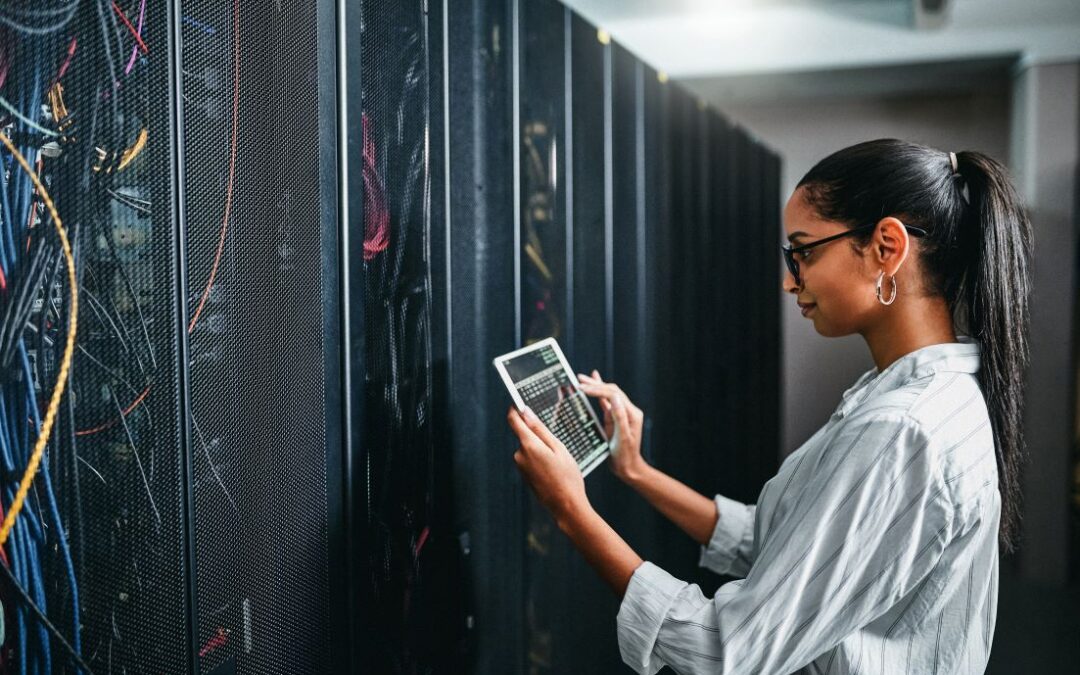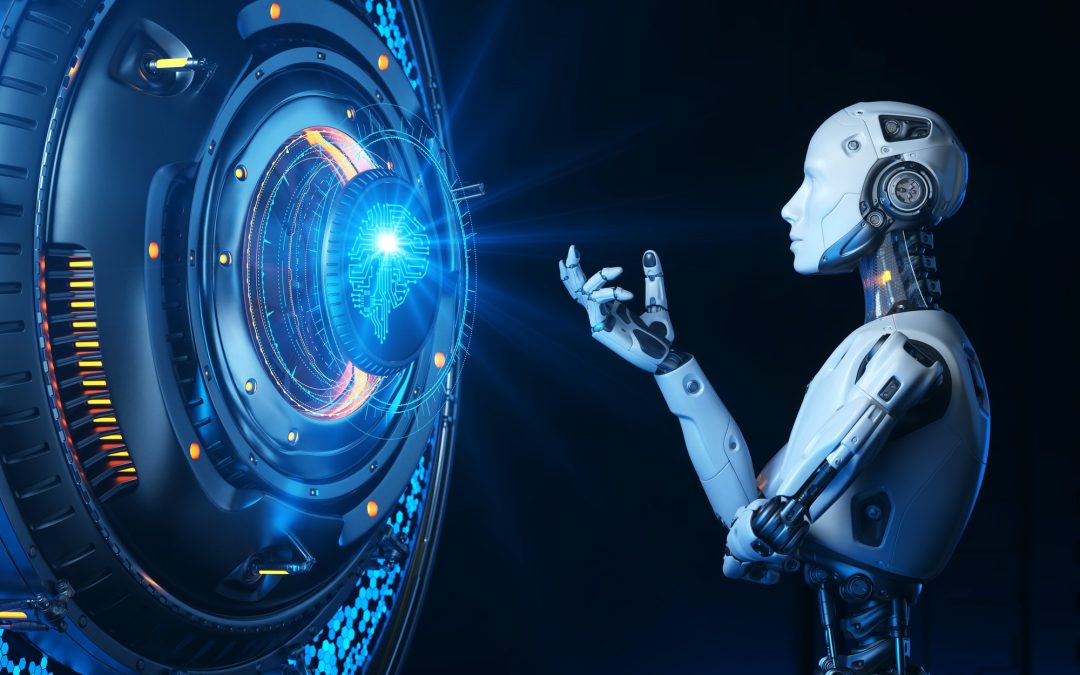
Apr 22, 2025
62% renewable energy: one of Cirion’s advances in its digital ecosystem
On Earth Day, Cirion presents its initiatives and results in environmental matters.
Within the framework of the celebration where the planet is the protagonist, it is the opportunity to reaffirm that digital transformation is only possible if it advances in balance with the environment. Sustainability, more than a trend, has been consolidated as a structural part of the business strategy, with concrete, measurable actions aimed at generating a real impact.
For years, sustainability in the technology sector was a long-term goal. Today, it represents a strategic imperative. At Cirion Technologies, this approach has been integrated as a fundamental part of our vision: to enable digital growth in Latin America, while minimizing environmental impact.
Our recent ESG Report 2023, published in December 2024, shows significant progress. We managed to reduce our carbon footprint by 17% compared to the previous year, thanks to investments in efficient infrastructure and clean energy. As a result, 62% of the energy we use comes from renewable sources, up from 40% in 2022.
This evolution has been particularly reflected in our network of data centers. We apply energy efficiency criteria from the design stage, avoiding water-intensive cooling systems and adopting solutions with state-of-the-art ecological gases. With a view to future expansions, we evaluate mechanisms such as rainwater harvesting to minimize the use of water resources.
In addition, the company has a circular economy model through certified recycling programs, which allow equipment such as modems and routers to be recovered and reconditioned. These actions, accompanied by specialized audits, guarantee compliance with environmental standards throughout our operation.
Teamwork with suppliers, key to the business
At this point, we seek to evaluate the environmental performance of our suppliers and promote a value chain committed to sustainability. In 2023, the measurement of scope 3 emissions – those associated with the supply chain – began, which will allow us to have the ability to define a decarbonization strategy aligned with international climate objectives in the future.
The expansion of data centers responds to the sustained growth in cloud services and artificial intelligence. Faced with this demand, we are committed to scalable, secure and efficient infrastructure, which combines cutting-edge technology with environmental responsibility.
At the same time, we have an active agenda in social sustainability, which allows us to promote local hiring in the countries in which we operate and also promote training initiatives in digital skills. We are sure that sustainable regional development requires inclusion and the generation of opportunities.
Taking care of the planet is a collective task that begins with every decision you make as an industry, company or individual. Technology can and should be a tool to preserve the essential. Because only if we protect the Earth can we sustain the progress we want to build.
About Cirion
Cirion is a leading digital infrastructure and technology provider, offering a comprehensive suite of colocation, data center infrastructure, connectivity and terrestrial and subsea fiber network services. Cirion serves over 5,500 Latin America-based and multinational customers, including enterprises, government agencies, cloud service providers, wireline and wireless carriers, ISPs, and other leading businesses. Cirion owns and operates a facilities-based network and data center portfolio, with extensive coverage spanning across the Latin America region. Learn more about Cirion at www.ciriontechnologies.com
Follow us on our Social Networks
LinkedIn | Twitter | Facebook | Instagram | YouTube | Blog

Apr 2, 2025
Cloud Connect: The Key to Optimizing Performance, Security, and Efficiency in the Financial Sector
Cloud interconnect is a key service for achieving secure and efficient connections that enable us to tackle the industry’s current challenges.
Santiago, April, 2025.- Digital transformation has led financial sector companies and institutions to explore solutions that will enable them to operate more efficiently, optimize resources, and strengthen security measures for their transactions, in the face of new and more sophisticated types of online fraud.
In this context, Cloud Connect rises as a fundamental service to achieve these goals, providing reliable access to critical services, improving operational performance, and minimizing cyberattack risks. This service enables integration between on-premises systems and cloud platforms through private and secure connections, data synchronization, and dedicated links to platforms such as AWS EC2, Microsoft Azure, Google GCP, IBM Cloud, and Oracle OCI.
Thus, high-performance connectivity to the public cloud seems to be the best option for financial institutions to run their applications and operations in a hybrid infrastructure, ensuring efficient and secure information exchange.
Gianni Hanawa, Sales Director of Connectivity Business Unit for Chile and Peru, at Cirion Technologies, states that one of Cloud Connect’s primary benefits is that “it allows the financial sector companies to optimize resource deployment and boost operational efficiency. Instead of relying on owned infrastructure, organizations can leverage direct and secure connections to multiple cloud providers, ensuring better management of their technology investments”.
Fast and reliable access to cloud platforms is critical to ensuring a seamless experience for customers and employees. Advanced interconnection solutions facilitate high-performance connectivity, minimizing latency and ensuring continuous availability of essential applications. In a financial environment where every second counts, a robust and scalable footprint improves businesses’ responsiveness and operational efficiency.
Cirion’s Cloud Connect stands out for three key benefits:
- Security and Privacy, by avoiding public networks, reducing the risk of attacks, and improving data protection.
- High Performance, optimizing critical applications’ performance through a stable connection.
- Global Connectivity and Scalability, enabling integration into various cloud platforms for customized solutions based on their business needs.
On the other hand, cyber threats growth, including AI-powered fraud and sophisticated attacks, has led financial institutions to strengthen their digital infrastructure. “Private interconnection to the cloud decreases vulnerability exposure by avoiding public networks and ensuring secure data transmission. By utilizing private networks and advanced protection protocols, businesses can mitigate risks and ensure critical information protection, complying with the highest security standards,” explained Hanawa.
Accordingly, Cirion’s expert states that “to address these challenges, having an interconnection ecosystem with direct and secure access to multiple cloud providers is a competitive edge,” since “these capabilities allow organizations to adjust to market demands and operate with greater resilience in a highly dynamic environment.”
As the financial sector continues to evolve toward digitalization, cloud interconnection becomes a cornerstone for improving operational efficiency and protecting critical assets. “With the right infrastructure and advanced connectivity strategies, businesses can face future challenges with greater confidence, ensuring the best performance and security in their digital operations,” concluded Hanawa.
About Cirion
Cirion is a leading digital infrastructure and technology pan regional provider, offering a comprehensive suite of colocation services, cloud infrastructure and terrestrial and subsea fiber networks. Cirion serves over 5500 Latin American and multinational customers headquartered in Latin America, including enterprises, government Agencies, cloud Service Providers, carriers, ISPs and other leading businesses. Cirion owns and operates a facilities-based network and data center portfolio, with extensive coverage spanning across the Latin America region. Learn more about Cirion in www.ciriontechnologies.com
Follow us in Social Media
LinkedIn | Twitter | Facebook | Instagram | YouTube | Blog
Media Contact
Paulette Cartes
Impronta
Tel: + 56 9 3411 4971
pcartes@impronta.cl
Diego Montes
Impronta
Tel: + 56 9 4274 6515
dmontes@impronta.cl
Hugo Pérez
Impronta
Tel: + 56 9 4252 3795
hperez@impronta.cl

Mar 5, 2025
Five steps to increase female participation in technology
HR Director at Cirion Technologies shares strategies for inclusion and development of women in the sector
São Paulo, March 05, 2025 – In the last 10 years, the number of jobs in the technology area has increased by 95% in Brazil, according to a study released by the Federation of Commerce of Goods, Services and Tourism of the State of São Paulo (FecomercioSP). Despite the high demand, female participation is still low: less than 20% of positions in the technology area in Brazil are held by women. When we consider leadership positions, adding up all of Latin America, they occupy less than 30% of them, according to the Women in Technology survey.
This scenario reflects challenges such as technical training, lack of representation, and invisible barriers that perpetuate gender inequality in the sector. To help transform this reality, companies such as Cirion Technologies, a leading provider of digital infrastructure and technology, have developed strategies to retain and qualify talent so that more women take on positions that are mostly held by men.
As part of this commitment, Cirion’s Chief Human Resources Officer, Cibele Giarrante, shares five essential tips to promote the inclusion and development of women in technology:
- Create mentoring and training programs: Mentoring programs help reduce barriers and expand opportunities for women who want to enter the area to develop more quickly.
- Promote a more flexible work environment: Policies such as flexible working hours and childcare assistance are key to supporting women, especially mothers, to advance in their careers.
- Ensure a safe and inclusive environment: Cirion has developed a welcoming protocol for employees who are victims of domestic violence, which will be launched in March, due to International Women’s Day, celebrated on the 8th. Safe environments and institutional support make all the difference, so the company has created a guidance list for managers and will offer financial, emotional, psychological and legal support to employees.
- Give visibility to women in technology: initiatives such as networking groups, events, and the recognition of female leaders are essential to encourage more women to enter the area. One of these events will take place on March 11, in São Paulo, where the company will hold an afternoon of autographs with the operations manager for Latin America, Tatiana Soares. She is co-author of the book Women in Telecom, a work that brings together stories of women who have made a difference in the technology market.
- Invest in technical training and professional development: Supporting female skills in technology is an essential step to increase women’s participation in the sector. Cirion encourages this growth through training programs and specialized training, such as courses in public speaking, personal branding, social networks and leadership. In addition, the company offers a scholarship program that provides technical training for female employees.
“There are still challenges to be overcome, but we are moving forward. The presence of women in technology is not just a matter of representation, but a necessity for the development of innovative and inclusive solutions for society”, highlights Cibele Giarrante.
Finally, Cibele gives a bonus tip for those who intend to grow in the area: “Empowerment and attitude are fundamental to stand out in any sector. Therefore, prepare yourself with technical training and do not be afraid to face new challenges. We can overcome all obstacles”, she emphasizes.

Cibele Giarrante, Director of Human Resources at Cirion Technologies. Photo: publicity
About Cirion
Cirion is a leading pan-regional digital infrastructure and technology provider, offering a comprehensive suite of colocation, cloud infrastructure, and terrestrial and subsea fiber network services. Cirion serves over 5,500 Latin America-based and multinational customers, including enterprises, government agencies, cloud service providers, wireline and wireless carriers, ISPs, and other leading businesses. The Company owns and operates a facilities-based network and data center portfolio, with extensive coverage spanning across the Latin America region. Learn more about Cirion at www.ciriontechnologies.com
Follow us on our Social Networks
LinkedIn | Twitter | Facebook | Instagram | YouTube | Blog
Media Contact
Agência Oribá
Kesly Cordeiro
kesly.ferreira@agenciaoriba.com.br
Marcia Brandão
marcia.brandao@agenciaoriba.com.br

Jan 28, 2025
Cirion Reinforces Its Commitment to Security on International Data Privacy Day
The company’s experts emphasize the need for a dual approach that involves not only adopting new security and privacy tools but also raising user awareness. Nearly half of organizations input confidential information into generative AI applications.
Buenos Aires, January 28, 2025. In the era of digital transformation and artificial intelligence (AI), the challenge of safeguarding the vast amount of information circulating in the virtual world is becoming increasingly critical. International Data Privacy Day, celebrated every January 28, aims to raise awareness among citizens about the importance of protecting their privacy in their online experiences.
In this context, experts from Cirion Technologies, a leading provider of digital infrastructure and technology in Latin America, propose a dual approach that combines user education with the adoption of tools to ensure the highest possible level of protection.
The need for companies to develop strategies that reassure their customers and users is accelerating. A Cisco study highlights that 94% of organizations believe their customers would not buy from them if they failed to protect data adequately.
Cultural factors play a key role: although 95% of companies believe the benefits of investing in privacy outweigh the costs, according to the same study, habits, customs, and uncertainties persist that undermine results. Specifically, 48% of organizations input non-public company information into GenAI applications, and, according to the International Association of Privacy Professionals, only 29% of consumers find it easy to understand how well a company protects their personal data.
In response to this phenomenon, more organizations are opting for hosted security services and entrusting data protection to providers like Cirion. For example, last September, Cirion signed a Managed Security Services Provider (MSSP) agreement with Radware, a global leader in application security and multicloud delivery solutions.
This complements the end-to-end layered solutions already offered by the company: from mitigating Distributed Denial of Service (DDoS) attacks at the outer edge to Zero Trust Network Access (ZTNA) strategies to ensure secure connectivity for remote users with applications, including Web Application and API Protection (WAAP), next-generation perimeter firewalls, control tools that allow organizations to visualize their landscape and analyze the state of their security, and their unified SASE (Secure Access Service Edge) solution.
Additionally, Cirion operates three Security Operations Centers (SOCs) located in Argentina, Brazil, and Colombia, staffed with specialized resources and extensive expertise. These SOCs monitor all security events across the region, from Miami to Tierra del Fuego, and provide solutions to protect organizations’ digital assets, including, of course, users’ personal data.
“While this is an excellent opportunity to raise visibility on the topic, data privacy protection is not limited to a special date—it must be an ongoing priority,” said Miguel Rodriguez, Chief Information Security Officer at Cirion Technologies. “Our commitment, therefore, is to ensure automated protection, faster mitigation, and improved accuracy in detecting potential intrusions into users’ private data, while also ensuring that all these tools are effective so organizations can continue focusing on innovating and delivering better digital experiences to their customers,” he concluded.
About Cirion:
Cirion is a leading pan-regional digital infrastructure and technology provider, offering a comprehensive suite of colocation, cloud infrastructure, and terrestrial and subsea fiber network services. Cirion serves over 5,500 Latin America-based and multinational customers, including enterprises, government agencies, cloud service providers, wireline and wireless carriers, ISPs, and other leading businesses. The Company owns and operates a facilities-based network and data center portfolio, with extensive coverage spanning across the Latin America region. Learn more about Cirion at www.ciriontechnologies.com
Follow us on social media
LinkedIn | Twitter | Facebook | Instagram | YouTube | Blog
Media Contact
Paula Vivo
Cirion Technologies
T: +55 11 3957-2424
paula.vivo@ciriontechnologies.com

Nov 28, 2024
Data centers: Technology giants that uphold AI
Colombia, November 2024.- Artificial Intelligence (AI) is redefining multiple sectors, though its impact would be unfeasible without its support infrastructure. Data centers are at the core of this infrastructure, technology giants that store, process and distribute the huge amount of data feeding this tool. These data centers are the key foundation that supports AI’s daily operations, making everything possible, from industrial process automation to online service customization.
Based on a research by Aritzon, the data centers market in LatAm is expected to grow from US$5,51 billion registered in 2022 to US$8,81 billion by 2028. This demonstrates the importance of this sector, which in addition to being the driving force behind AI performance, is driven by the demand for cloud services, edge computing and cybersecurity, among other factors that companies pursue.
“AI requires a highly available and resilient infrastructure capable of handling intensive workloads, ensuring low latency and high security. Data centers are the cornerstone of this ecosystem,” said Pablo García, regional data center manager at Cirion Technologies, highlighting the crucial role of this infrastructure in the Artificial Intelligence Era.
Not just data storage
Data centers’ role goes way beyond, as they are responsible for processing complex algorithms and maintaining data integrity and security. AI would not be able to analyze large information volumes at the required speed without them. This is why data storage and processing infrastructures are constantly evolving, adapting to the growing market demands.
On the other hand, sustainability is one of the most important challenges for data centers. The enormous amount of energy they consume poses environmental challenges, and technology companies are taking steps to reduce their ecological impact. According to an International Energy Agency (IEA) report, energy efficiency improvements have helped control energy demand growth from data centers and data transmission networks, which currently demand around 1.0% to 1.5% of global electricity use.
The use of renewable energy sources and more efficient cooling systems are some of the solutions that are being implemented. In addition, AI is helping to streamline the operation of data centers themselves, improving energy efficiency through real-time monitoring and process automation. Accordingly, Gartner predicts that 50% of data center operators will adopt this technology, bots and machine learning to improve energy and operational efficiency by 2025.
The volume of data managed by Artificial Intelligence is constantly increasing, and with it, the need for robust infrastructures. As this technology becomes integrated into more aspects of our daily lives, from homes to smart cities, the ability of data centers to manage this information is of the essence. Edge computing is gaining momentum as a trend, allowing data to be processed closer to its source, reducing latency and improving critical applications speed.
Data security is another fundamental aspect of the infrastructure’s underlying tool. Due to data centers increasing storage of sensitive information, they have become attractive targets for cyberattacks as well. Here, this technology plays a role in strengthening security by detecting unusual patterns and anticipating threats.
The future of Artificial Intelligence primarily depends on innovating its support infrastructure. The ability to scale operations, process information in record times, and do so in a sustainable and secure manner is what will enable the ongoing evolution of this tool. Therefore, advances in the efficiency, sustainability and security of data centers are essential for the continued development of this technology.
“At Cirion Technologies, our infrastructure in Colombia and Latin America is designed to support the highest standards of availability and efficiency, driving digital transformation in the region. With a network of 18 strategically located carrier-neutral data centers, we are prepared to face the challenges that AI brings and guarantee the operational continuity of our clients,” concluded García.
About Cirion
Cirion is a leading digital infrastructure and technology pan-regional provider, offering a comprehensive suite of colocation services, cloud infrastructure and terrestrial and subsea fiber networks. Cirion serves over 5,500 Latin American and multinational customers headquartered in Latin America, including enterprises, government Agencies, cloud Service Providers, wireline and wireless carriers, ISPs and other leading businesses. Cirion owns and operates a portfolio of owned networks and data centers, with extensive coverage throughout the Latin American region. Learn more about Cirion at www.ciriontechnologies.com
Follow us on Social Media
LinkedIn | Twitter | Facebook | Instagram | YouTube | Blog
Page 1 of 712345...»Last »






